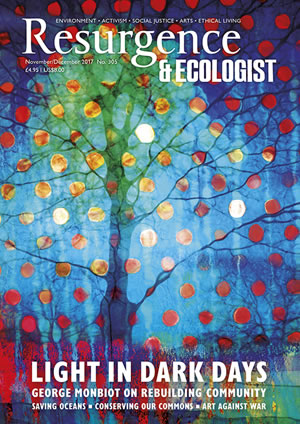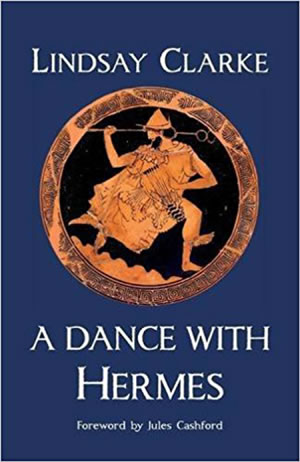I have missed my friend and mentor John Moat since his passing in 2014. No one else I know speaks much about being, ‘fingered by Mercurius’ – that is except our mutual friend, Lindsay Clarke. So, when I saw Lindsay’s new book, A Dance With Hermes and his dedication in the prelims to John, I knew I was in for a treat.
As Jules Cashford writes in her exceptional Foreword to the book – which sets it perfectly in context – Lindsay brings the elusive Hermes, ‘brilliantly and vividly to life, dreaming the myth forward’. And what a myth. Hermes the Trickster; Hermes Mercurius Trismegistus, Hermes the Greek god of writing and magic; the psychopomp, guiding souls to the afterlife. But, it seems, what interests Lindsay most in all of Hermes’ many guises is the fact that he always provokes imaginative thought, helping us to refine and understand the complex and ambiguous creatures we are.
Without being academic or arcane, Lindsay uncovers Hermes at work in the modern era through this series of 49 poems, the mere titles of which revealing mischief at work: ‘He Cocks a Snook at Nietzsche (and Philip Larkin)’, ‘A PR Man Speaks Up’ (very funny) and ‘He Giveth Tongue’ – the first line of which conjectures, ‘Surely it takes a god this versatile to dream up language?’ Ah yes, it’s a long while since I’ve enjoyed a collection of poems as much as these.
What a pleasure it is to read and smile and re-read these words, not overly-crafted, but flowing and funny and so unflinchingly pertinent. In the poem ‘He Considers GUTs and Such’, how can we not reflect on our own humanity, when Lindsay writes: ‘He likes it when we hanker after truth | in things, yet smiles to see how serious | we are in postulating theories | of everything (e.g. the thoughts of Alan Guth | or quantum fluctuations in the vacuum…’ Seen from the eyrie of the gods, how human us mere mortals are!
Every page uncovers alchemical gold: in ‘Nigredo’: ‘As Apollo once told Rilke: ‘Time to change!’ | So Hermes slips into the vas hermeticum | and starts to decompose. He’ll now become | whatever time and alchemy arrange.’ It takes my breath away. And in ‘His Emerald Tablet’: ‘Time doesn’t mean a lot to gods. It’s just | a theatre of entertainments where | the mortals strut their stuff and swear | that they believe in gods, or don’t, and cast | about for stories that make sense | of their short lives…’
This book reminds me that poetry was my first love, when my childhood bedside table was never without Louis Untermeyer’s Golden Treasury of Poetry and when my dreams were filled with the Jabberwocky and the Highwayman. Perhaps poetry is the ultimate Hermetic tradition; the salve for our imagination? A Dance With Hermes certainly confirms as much.
I’ll leave you with a final line from the poem, ‘He Monitors Its Use’, which just made me laugh out loud: ‘Hermenuetics – just the kind of oblong word | for which the god, whose name it nabbed, invented | dictionaries.’ Sublime.








